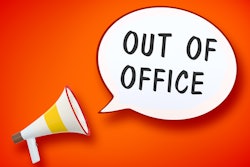On the off-chance you’re looking for a new facility in Kansas City, you might just find one hell of a deal.
Harley-Davidson has listed its KC plant for sale as it prepares to shutter the location and cut 800 jobs as a result.
The Kansas City Business Journal reports that the factory was built in the late 1990s for a cost of $85 million. At the time, Kansas City beat out 30 other communities who were vying for Harley, and offered a bevy of incentives, including tens of millions in state tax abatement and offset environmental controls.
The plant closure became the center of intense political drama when Harley first made the announcement last year and blamed President Trump’s trade policy for its need to shutter the plant. The company said a tariff increase on bikes it sold into the EU would mean raising its prices more than $2,000 per bike and that it would make more sense to move production overseas. Union officials were highly critical of decision, saying it was hypocritical for the company to be “taking tax breaks with one hand and handing out pink slips with the other.”
Undeterred by its critics, Harley’s shutdown looms in the third quarter, and the plant that once employed 800 workers in now available at an asking price of $26.5 million – which includes a paint booth system that was purchased for $30 million alone. The facility is just over a half a million square feet and sits atop 314 acres. A LinkedIn post related to the listing says there are 600 skilled workers that would love to stay working at the plant and that a purchase of the site “could be a real bargain for the right business.”
The available skilled workforce alone – including much-coveted machinists – would likely offer some immediate payback for a related industry: A recent study by the Manufacturing Institute estimates the skills gap will leave more than 2 million positions unfilled over the next 10 years, with a resulting economic impact of up to $2.5 trillion.






















